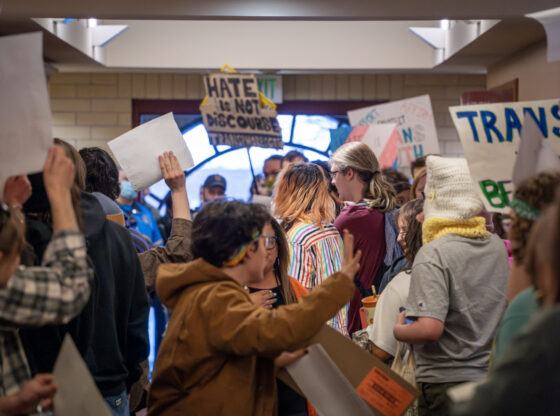On Jan. 29 Bill Russo, Assistant Secretary of State in the Bureau of Global Public Affairs, visited DU’s campus to discuss U.S. foreign policy priorities and talk about how his department shares them with the general public.
The discussion began with Russo explaining the role his department plays in spreading official foreign policy and educating both foreign and domestic laypersons on what foreign policy means for them. He emphasized the mandate of the Bureau of Global Public Affairs internationally is to answer the question: why should the world want to work with the United States?
For Russo, his role is all about building trust and credibility with the bureau’s diverse audience and ensuring their message is heard. In many instances, this means partnering with those already trusted by their audience. Russo explained that credibility and being compelling are the chief components of success in the modern world of multifaceted media.
“We have to be credible. I don’t think it’s a surprise to hear trust in institutions globally is generally in decline, and that’s for a whole lot of different reasons,” Russo said. “It’s also no longer sufficient to just be a credible voice, you also have to be a compelling voice. In the marketplace of information if you’re not compelling, if you’re not offering something interesting, people will just tune you out.”
The goal in forming these partnerships is to combat misinformation by putting factual information out in a way that urges people to listen, through sources they deem trustworthy. Russo gave the example of Secretary of State Anthony Blinken visiting Nigeria and meeting with a young YouTuber during his official visit there, as well as his department doing interviews with student journalists and local journalists all over the country on the domestic side.
“Part of the work is rooting out disinformation … but if we’re only in the weeding we’ll just constantly be on a hamster wheel, doing that forever. So we need to come in with something else to plant instead of the weeds, which is what we try to do — to put out factual narratives about what is it that we are doing,” Russo said.
For Russo, that means finding ways to engage young people with compelling, trustworthy social media partners, while not undermining the State Department’s credibility with older generations who may see social media as innately untrustworthy.
“Part of it is you have to recognize that when you say something anywhere it can be seen everywhere,” Russo said. “At the same time, we can target audiences. Reaching young people is incredibly important, so we are going to partner with influencers. You can do smart substantive engagements that are not kind of zany and silly.”
According to Russo, discerning what news from the government is trustworthy for young people rests on their capacity for critical thinking.
“There is an element of [misinformation] that’s never been more difficult, whether it’s AI-fueled technology, whether is deep fakes, it’s a lot easier to produce things that are fake than it’s ever been … which is why the kind of basic critical thinking skills that hopefully educations like the education students get here… help provide the toolkit to get a sense for ‘that doesn’t seem right.’” Russo said.
“If something seems almost generated to drive outrage and to drive clicks, take a minute to think before sharing, take that moment of pause to think critically and verify it before passing it on. That is the most important bulwark we all have.”
University discussions like this one are essential to the bureaus’ goal of reaching their diverse domestic audience and answering the questions they have about American foreign policy. Students and professors asked Russo for his take on a variety of topics, starting with the Israel-Hamas conflict.
Professor Debak Das asked Russo if he believes the U.S.’s reputation and legitimacy has suffered significantly domestically and abroad as a result of the plight of the Palestinian people and the U.S. decision to block a ceasefire.
Russo responded that they are focused on preventing conflict and unrest from spreading in the region, negotiating for the release of hostages and humanitarian aid getting into Gaza and being distributed.
“We try to make our work data-driven and there’s certainly some initial data out there that would suggest in particularly Muslim majority countries and Arab countries that yes, the U.S reputation is not especially stellar coming into this conflict and has nonetheless certainly taken a hit,” Russo said.
Russo hopes, “that from this terrible crisis, we build something better in its wake. For us that means…Israel normalizing relations with its Arab partners, which would require a real, credible pathway to a Palestinian state.”
Through conversations like these Russo hopes to clear some of the fog surrounding American foreign policy and give the Bureau of Global Public Affairs’ infinitely diverse audience a path to the facts.











